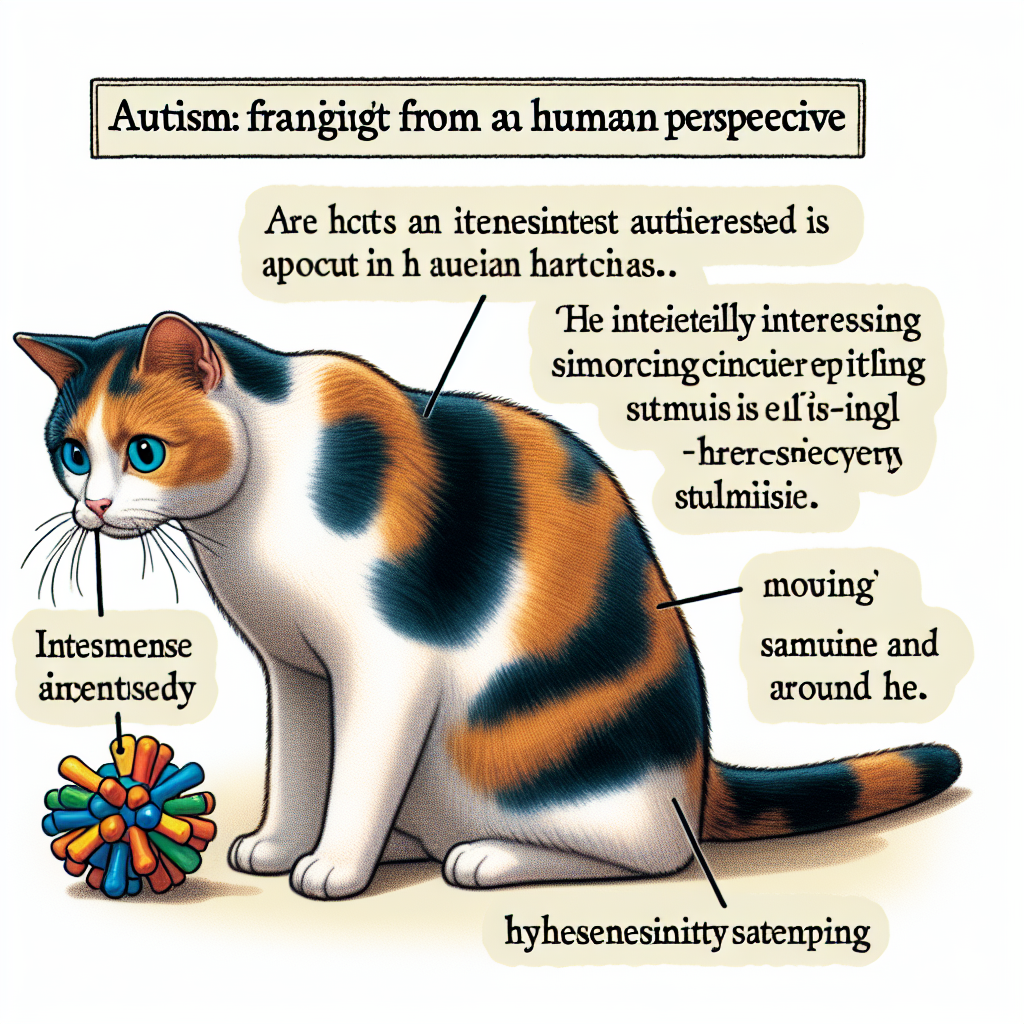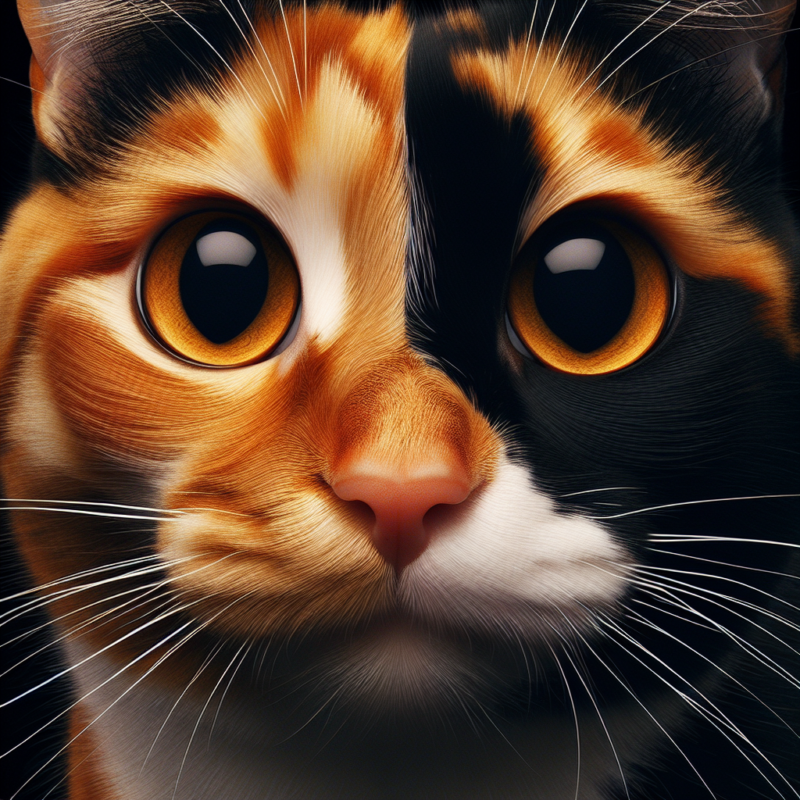About Calico kittens
Are calico cats autistic?
Are calico cats autistic?
The Link Between Calico Cats and Autism: What Research Says
Calico cats are known for their unique and beautiful coat patterns, with patches of orange, black, and white fur. However, there has been a long-standing belief that these cats may also have a link to autism. This theory has been circulating for years, with many cat owners and researchers wondering if there is any truth to it. In this article, we will delve into the research and explore the potential link between calico cats and autism.
Firstly, it is important to understand what autism is. Autism, or autism spectrum disorder (ASD), is a developmental disorder that affects communication and behavior. It is a complex condition that can present itself in various ways, with symptoms ranging from difficulty with social interactions to repetitive behaviors. According to the Centers for Disease Control and Prevention (CDC), approximately 1 in 54 children in the United States have been diagnosed with ASD.
Now, let’s address the question at hand – are calico cats autistic? The short answer is no. There is no scientific evidence to support the claim that calico cats are more likely to have autism. In fact, there is no evidence to suggest that any specific breed of cat is more prone to autism than others. This belief may stem from the fact that calico cats are predominantly female, and autism is more commonly diagnosed in males. However, this is simply a coincidence and not a causation.
Can a cat be Autistic?
So, where did this theory come from? Some people believe that the unique coat pattern of calico cats is a result of a genetic mutation, and this mutation may also be linked to autism. However, this is not entirely accurate. The coat pattern of calico cats is a result of a genetic phenomenon called X-inactivation. This is when one of the two X chromosomes in female cats is randomly inactivated, resulting in the expression of different coat colors. This process has no connection to autism.
Furthermore, there have been studies conducted to investigate the potential link between calico cats and autism. One study published in the Journal of Veterinary Behavior found no significant difference in behavior between calico cats and other breeds. The researchers observed 60 cats, including 20 calico cats, and found no evidence to support the belief that calico cats are more likely to have autism.
Studies on Autism for pets
Another study published in the Journal of Feline Medicine and Surgery also found no correlation between coat color and behavior in cats. The researchers surveyed 1,472 cat owners and found no significant difference in behavior between calico cats and other breeds. They also noted that the belief that calico cats are more likely to have autism is a myth and has no scientific basis.
It is important to note that just like humans, cats can also exhibit behaviors that may be similar to those seen in individuals with autism. For example, some cats may have difficulty with social interactions or may engage in repetitive behaviors. However, these behaviors do not necessarily mean that the cat has autism. It is essential to consult a veterinarian if you have any concerns about your cat’s behavior.
Understanding the Unique Traits of Calico Cats: Are They Similar to Autistic Behaviors?

Calico cats are known for their unique and beautiful coat patterns, with patches of orange, black, and white. But aside from their striking appearance, these felines also possess some interesting and distinct traits that set them apart from other cats. Some people have even drawn comparisons between calico cats and individuals with autism, due to certain behaviors and characteristics that they share. In this article, we will delve deeper into the world of calico cats and explore whether or not they can be considered autistic.
Firstly, it is important to understand what autism is and how it manifests in individuals. Autism, or autism spectrum disorder (ASD), is a developmental disorder that affects communication, social interaction, and behavior. It is a spectrum disorder, meaning that it can present itself in a wide range of ways and severity levels. Some common characteristics of autism include difficulty with social cues, repetitive behaviors, and sensory sensitivities.
Now, let’s take a closer look at calico cats and their unique traits. One of the most notable characteristics of calico cats is their independent nature. These felines are known for being strong-willed and having a mind of their own. They are not afraid to speak their minds and will often let their owners know when they want attention or when they’ve had enough. This independent streak can sometimes be mistaken for aloofness, which is a common trait in individuals with autism.
How does autism affect a Calico cat ?
Another trait that calico cats share with individuals with autism is their sensitivity to touch and sound. Many calico cats are known to be picky about who they allow to touch them and may become easily overstimulated by loud noises. This can be attributed to their heightened senses, as calico cats have a higher concentration of nerve endings in their skin compared to other cats. Similarly, individuals with autism may also have sensory sensitivities, making them more sensitive to touch and sound.
Furthermore, calico cats are known for their love of routine and dislike of change. These felines thrive on predictability and can become stressed or anxious when their environment is altered. This behavior is similar to individuals with autism, who often rely on routines and can become distressed when their routine is disrupted. This is because both calico cats and individuals with autism find comfort and security in familiar and predictable surroundings.
Symptoms of autism for calico kittens
In addition to these shared traits, calico cats and individuals with autism also have a tendency towards repetitive behaviors. Calico cats are known for their love of playing with toys, and they can spend hours chasing after a ball or batting at a string. Similarly, individuals with autism may engage in repetitive behaviors such as hand-flapping or rocking back and forth. These behaviors can serve as a way for both calico cats and individuals with autism to self-soothe and regulate their emotions.
However, it is important to note that while calico cats may exhibit some behaviors that are similar to those seen in individuals with autism, they are not autistic. The behaviors and traits they display are simply part of their unique personalities and do not indicate any underlying disorder. It is also worth mentioning that not all calico cats will exhibit these behaviors, as each cat is an individual with their own distinct personality.
Exploring the Controversy: Can Calico Cats Really Be Autistic?
Calico cats have long been a subject of fascination and mystery. With their unique coat patterns and charming personalities, it’s no wonder that they have captured the hearts of many cat lovers. However, in recent years, a controversial topic has emerged surrounding these beloved felines – can calico cats really be autistic?
The idea that calico cats may have a higher likelihood of being autistic has been circulating in the cat community for some time now. This belief stems from the fact that calico cats are almost always female and have a genetic makeup that includes three different coat colors – black, orange, and white. This combination is the result of a rare genetic phenomenon called X-inactivation, where one of the X chromosomes in female cats is randomly turned off, resulting in the unique coat pattern.
Some people have speculated that this genetic anomaly may also affect the brain development of calico cats, leading to autism. However, this theory has been met with skepticism and has not been scientifically proven. In fact, there is no concrete evidence to suggest that calico cats are more prone to autism than any other cat breed.
Is my calico kitten Autistic ?
One of the main reasons for this controversy is the lack of understanding and research on feline autism. While autism is a well-known condition in humans, it is still a relatively new concept in the world of veterinary medicine. As a result, there is limited information and studies on the prevalence of autism in cats, let alone calico cats.
Furthermore, diagnosing autism in cats is a challenging task. Unlike humans, cats cannot communicate their thoughts and feelings, making it difficult to identify any behavioral or social abnormalities that may be indicative of autism. As a result, most cases of feline autism are diagnosed based on observations and anecdotal evidence, rather than concrete scientific data.
Another factor that adds to the controversy is the lack of a clear definition of what constitutes autism in cats. In humans, autism is a complex neurodevelopmental disorder that affects social interaction, communication, and behavior. However, in cats, these traits may not be as easily identifiable, and there is no standardized diagnostic criteria for feline autism.
Adopt an Autistic Calico kitten
Despite the lack of concrete evidence, some cat owners and experts believe that calico cats may exhibit certain behaviors that are similar to those seen in autistic humans. These behaviors include repetitive movements, sensitivity to touch, and difficulty with social interactions. However, these behaviors can also be seen in cats without autism, making it challenging to draw a direct correlation between calico cats and autism.
Moreover, some experts argue that the idea of calico cats being autistic is simply a case of confirmation bias. This is a psychological phenomenon where people tend to seek out and interpret information in a way that confirms their existing beliefs. In this case, cat owners who believe that their calico cats are autistic may be more likely to notice and remember behaviors that align with their belief, while disregarding other behaviors that do not fit the narrative.
In conclusion, the controversy surrounding calico cats and autism remains just that – a controversy. While there may be some anecdotal evidence and theories to support the idea, there is no scientific proof that calico cats are more prone to autism than any other cat breed. As our understanding of feline autism continues to evolve, it is essential to approach this topic with an open mind and rely on scientific evidence rather than speculation and personal beliefs. After all, what truly matters is that our beloved calico cats are happy, healthy, and loved, regardless of their coat color or potential for autism. Adopt a kitten for sale from kittenbreeder.net now!

